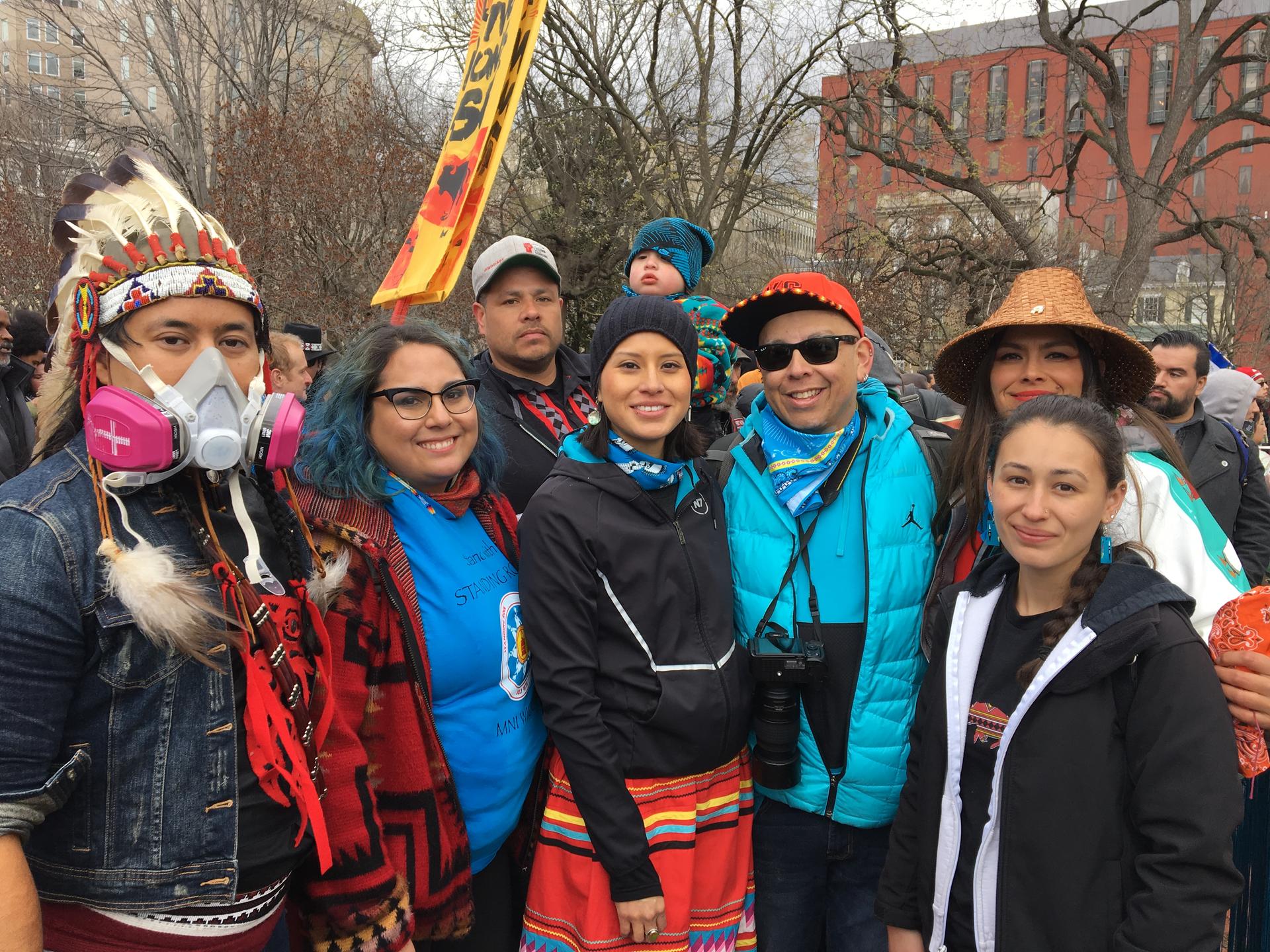President Trump, how will you build bridges to Indian country, even with people who may not support you?
Jasha Lyons Echo Hawk (Center left) and her partner Bunky Echo Hawk (Center right) pose with friends outside the National Mall in Washington D.C. after the Native Nations Rising March which took place on Friday, March 10th, 2017
Over President Donald Trump's roughly first 100 days, we'll be asking him questions that our audience wants answers to. Join the project by tweeting this question to @realDonaldTrump with the hashtag #100Days100Qs. See more of our questions at pri.org/100questions.
#53. @realDonaldTrump, how will you build bridges to Indian country, even with people who may not support you? #100Days100Qs
Last week, members of tribal nations traveled to Washington, DC, to show support for the Standing Rock Sioux tribe in its battle against the building of the Dakota Access Pipeline. Tribal members also called on the Trump administration to respect their sovereignty and honor treaties signed hundreds of years ago.
One of the hashtags supporters used was #ConsentnotConsultation — calling on federal authorities to get permission from Native communities before making any changes to their land.
Tribal leaders met with new Secretary of the Interior Ryan Zinke, a Republican from Montana who endorses a plan to open up public land to drilling and mining. But he says he's also someone who believes, “tribal sovereignty should mean something.”
He reiterated that in his meeting with those leaders last week. He also said the new administration faces serious challenges when it comes to issues in Indian Country — like education, health care, housing and tribal economies.
After the meeting, Shakopee Mdewakanton Sioux Community Vice Chairman Keith Anderson said “when tribal sovereignty is respected economic self-sufficiency follows.”
Many people living on reservations are among the nation’s poorest and suffer from decades of poor health and education. All rely on federal dollars to maintain access to basic services.
Under the Obama administration, Tribes felt they had a friend in the White House. And while many of Obama’s policies were controversial, he was often credited for reaching out to tribes, even paying a visit to Standing Rock — long before the pipeline controversy.
Many tribal members are suspicious of the Trump administration. They see the new head of the EPA and his views on climate change as a threat to the health of their nations. And, the new American Health Care Act would drastically alter tribal health service because Medicaid expansion makes up a big part of tribal health care budgets.
He also has a history of making insensitive and downright offensive comments about Native Americans — for example, calling Massachusetts Senator Elizabeth Warren Pocahantas, something many Native people feel is a racial epitaph. Back in 1993, testifying before a House sub-committee, he said Native American casinos were “overrun with mafia” and that he looked more Indian than some people running the casinos.
So, we're wondering what sort of president Donald Trump will be for Native Americans. Click here to tweet this question to the president.
Every day, reporters and producers at The World are hard at work bringing you human-centered news from across the globe. But we can’t do it without you. We need your support to ensure we can continue this work for another year.
Make a gift today, and you’ll help us unlock a matching gift of $67,000!
